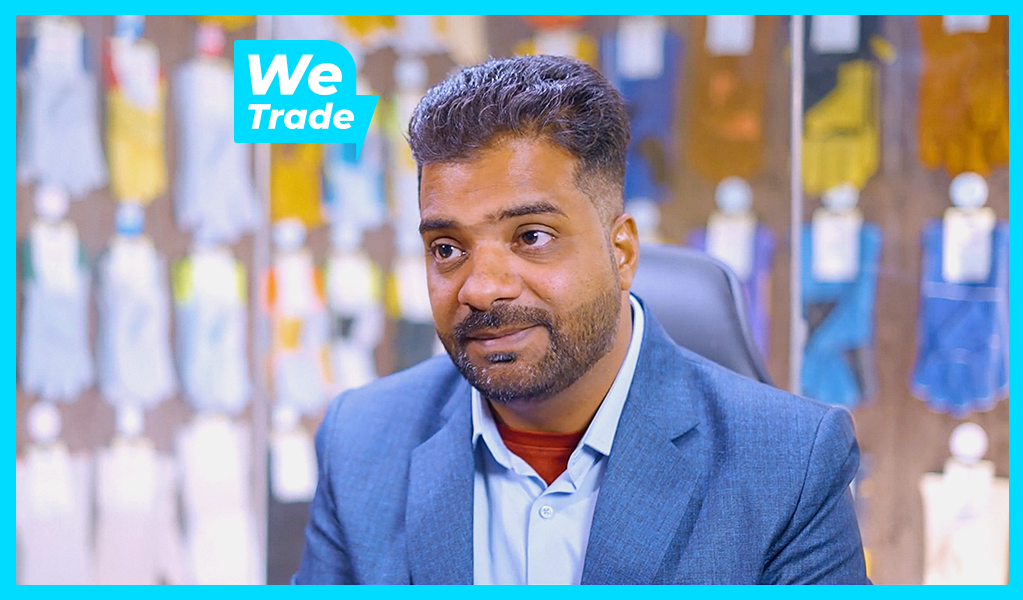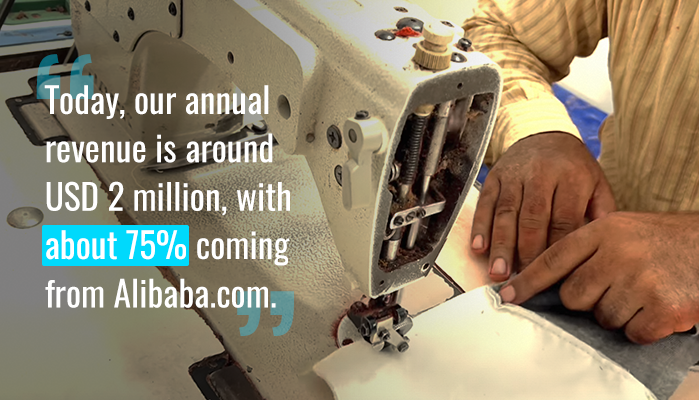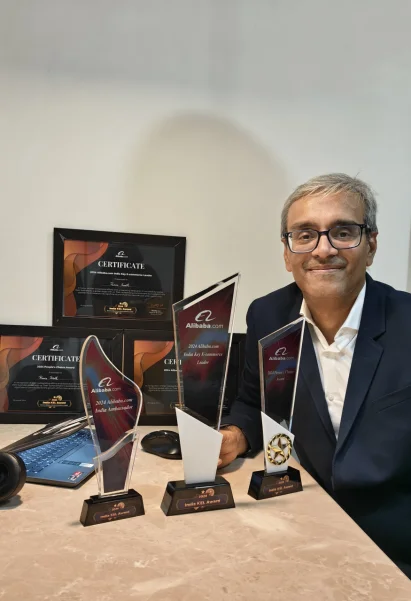How This Nutritionist-turned PPE Supplier Takes Made-in-Pakistan Global


Start your borderless business here
Tell us about your business and stay connected.
Reads for you

Success stories
Conifer Handmades: Cultivating Cross-Border Prosperity on Alibaba.com's Global Stage

Success stories
How Strategic Leverage on Alibaba.com Propelled Business Growth

Success stories
Transforming Traditions: A Journey from Traditional Trade to E-commerce Success with Alibaba.com

Success stories
Transforming from Importer to Renowned Manufacturer and Esteemed Lecturer
According to the International Labor Organization, leather is Pakistan’s third-largest export industry, contributing 4 percent to GDP.
The sector is concentrated in Sindh and Punjab around Karachi, Kasur and Sialkot, with the vast majority of tanneries and leather producers consisting of small and medium-sized enterprises (SMEs). The leather industry has the potential to grow in terms of volume of exports focusing on quality products and diversification.
Muzafar Hussain comes from an extended family of tannery and leather. For years, his family has stuck to local trades like shoes, leather, garments, and gloves.
Among his 20 cousins, Muzafar is the only one with a formal education. After working as a nutritionist in a hospital, he decided to join the family business in 2012.
This is Muzafar’s story in his own words:
Weathering the Wear
My elder cousin started the family business back in 1992. He picked up some key techniques and brought them to Sialkot, where we’ve been ever since. From 1992 to 2002, we focused on raw materials and skins, and distributed them to local markets. Things started to change in 2002. We began manufacturing finished products like jackets, shoes, and gloves, and selling them to local vendors for export.
By the time I graduated in 2012, we had two decades of local manufacturing experience. That’s when we founded JNM Leather Safety Gloves Pakistan. We specialize in PPE safety gloves like Canadian rigger gloves, welding gloves, firefighting gloves, and mechanic gloves. We were strong locally but wanted big business globally.
At the time, we had no idea how to go global. We tried many B2B and B2C platforms and bought memberships, but the results were disappointing. Between 2012 and 2014, we didn’t see much success, and I was almost ready to give up.
But then in 2014, a friend told me about Alibaba.com. He had been using it for two years and was getting lots of exposure. So, I signed up and bought a membership. The onboarding process back then was tough, but I got my first order, USD 40,000 from South Korea. Another deal came in for USD 62,000. From then on, we gained one or two big customers every year.
In those early years, trust was our biggest challenge. A lot of buyers asked why they should work with a relatively unknown business from Pakistan. To gain their trust, we offered free samples and trial orders on a credit basis. We also offered customization in terms of colors, sizes and more to meet customer needs.
Our verified membership with Alibaba.com helped a lot. In 2022, we became a verified supplier, which further boosted our credibility. I’m also a certified lecturer for Alibaba.com and have done 10 sessions. Now, we export to 25 countries, and we’ve got plenty of customer testimonials to back us up.

A Mission Beyond Business
Today, our annual revenue is around USD 2 million, with about 75% coming from Alibaba.com. We’ve worked with famous companies around the world. Around 60% of our customers are from the U.S., 20% from Europe, and another 20% from Asia.
Pakistan’s market is less known to the world. I’ve had to make every effort to promote our company, but we’ve come a long way.
In the last 10 years, I’ve connected with 35 to 40 different local companies, and encouraged my friends and classmates to start with small investments on Alibaba.com. I’ve shared my honest reviews and tips about the platform to help Pakistani products reach global markets.
For me, it’s not just about growing my business or promoting Alibaba.com; it’s about helping my country. The more local businesses export, the more people elsewhere will recognize the value of Pakistan-made products. We’re helping to put Pakistan on the global map, and I always work with goodwill for my people.
Keep up with the latest from Alibaba.com?
Subscribe to us, get free e-commerce tips, inspiration, and resources delivered directly to your inbox.
























